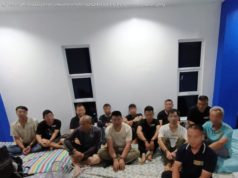Exhibition on declassified information at Central Library captures cultural link between Shanghai and city
Long before “one country two systems”, there was “one record, two labels”, a secret music mission to spread folk songs recorded in mainland China to overseas Chinese, with Hong Kong as the distribution point.
Historical details like this, which captured links between colonial Hong Kong and the mainland in the 1950s amid the cultural divide, were revealed on Wednesday at the opening ceremony of exhibition “The Art-Tune Encounter: A Gramophone Remembrance of Hong Kong and Shanghai”.
The event at the Hong Kong Central Library, which will run till end November, is in its final leg after road shows in Shanghai, Beijing and Xiamen since June. It was made possible with the passing of the 60-year mark for top secret Chinese documents to be declassified.
“We hope the exhibition will highlight the musical memory and the connection between Shanghai and Hong Kong, which is never broken despite the separation in 1949 [under the communist revolution] , ” Zhang Limin, general manager of state-owned China Record, said.
In 1956, Art-Tune Records Company, a registered private Hong Kong label, was actually a subsidiary of China Record Corporation in Shanghai, carrying out clandestine musical operations.
“Art-Tune served as the distributor of folk music recorded on the mainland for overseas Chinese in Southeast Asia so Hong Kong was the ideal location for the traffic, ” Zhang said.
Declassified information showed that on November 4,1955, an offshore record company was slated to be set up to distribute mainland records. The document stipulated that Art-Tune would distribute China Record music but repackaged with different designs and even different names of artists and orchestras.
“We have over 70,000 pages of written documents, including artists’ contracts, and unpublished recordings from old Shanghai from the 1920s onwards. I would think there are more revelations to come in years ahead, ” Zhang said.
Rochelle Lau Shuk-fan, assistant director of the Hong Kong Leisure and Cultural Services Department, the event organiser, saw the vintage vinyls as evidence of Hong Kong’s special role over the years.
“These exhibits show the city has served as a window to the world for China, and I think this role will go on, ” she said.
Jim Chang Hok-yan, the chief librarian who gave speeches at the road shows, said: “Many of us are familiar with the music in Hong Kong’s old Cantonese martial arts movies in the 1960s, but few know it came from Art-Tune records.”
“Nor did mainland audiences know that their music from the China Record label had been so widely used in old Hong Kong movies, so this exhibition is a timely explainer, ” he added.
Tracy Cai, an assistant at China Record, said the role of Art-Tune was a critical link in her understanding of Hong Kong culture.
“We were clueless when Stephen Chow said the use of martial arts music in his popular movies was a tribute to old Hong Kong movies, but now it’s all clear, ” she said.
Cai added that the exhibition required intense work for more than a year to consolidate the old musical archives of Shanghai and Hong Kong.
“Some Art-Tune records are exclusively Hong Kong’s, so it’s a nice reunion for all of these to be displayed under one roof after all these years, ” she said.






